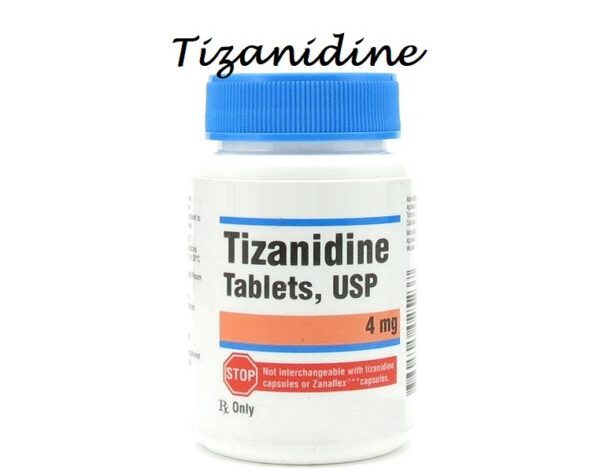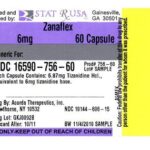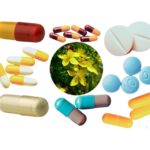List of Drugs That Interact With Tizanidine (Zanaflex)?

Tizanidine, sold under the brand name Zanaflex among others, is a medication that belongs to a class of drugs called skeletal muscle relaxants. It works by slowing action in the brain and nervous system to allow the muscles to relax. Tizanidine is used to relieve the spasms and increased muscle tone caused by multiple sclerosis (MS, a disease in which the nerves do not function properly and patients may experience weakness, numbness, loss of muscle coordination and problems with vision, speech, and bladder control), stroke, or brain or spinal injury.
Effectiveness appears similar to baclofen or diazepam. It is taken by mouth and works by blocking nerve impulses (pain sensations) that are sent to your brain. Tell your doctor right away if you have any serious side effects, such as: fainting, mental/mood changes (such as hallucinations), slow/irregular heartbeat, vision changes (such as blurred vision). Tizanidine has rarely caused very serious (rarely fatal) liver disease.
What drugs interact with tizanidine?
According to Healthline, tizanidine oral tablet can interact with other medications, vitamins, or herbs you may be taking. An interaction is when a substance changes the way a drug works. This can be harmful or prevent the drug from working well.
To help avoid interactions, your doctor should manage all of your medications carefully. Be sure to tell your doctor about all medications, vitamins, or herbs you’re taking. To find out how this drug might interact with something else you’re taking, talk with your doctor or pharmacist.
Examples of drugs that can cause interactions with tizanidine are listed below.
Drugs that should not be used with tizanidine
Do not take these drugs with tizanidine. When used with tizanidine, these drugs can cause dangerous effects in the body. Examples of these drugs include:
• Fluvoxamine and ciprofloxacin (Cipro). Using these drugs with tizanidine may cause very low blood pressure. It may also cause increased drowsiness or decreased muscle control.
• Other alpha-2 agonist medications such as clonidine, methyldopa, or guanfacine. Using these drugs with tizanidine can cause very low blood pressure.
Drugs that increase the risk of side effects from tizanidine
Taking tizanidine with certain medications raises your risk for side effects from tizanidine. This is because the amount of tizanidine in your body is increased. Avoid using these drugs with tizanidine if possible. Examples of these drugs include:
• Zileuton. Increased side effects can include decreased blood pressure, decreased heart rate, or extreme drowsiness.
• Certain antibiotics called fluoroquinolones (other than ciprofloxacin), such as levofloxacin, moxifloxacin, or gemifloxacin. Increased side effects can include decreased blood pressure, decreased heart rate, or extreme drowsiness.
• Certain heart rhythm drugs such as amiodarone, mexiletine, propafenone, or verapamil. Increased side effects can include decreased blood pressure, decreased heart rate, or extreme drowsiness.
• Antacids such as cimetidine or famotidine. Increased side effects can include decreased blood pressure, decreased heart rate, or extreme drowsiness.
• Oral contraceptives. Increased side effects can include decreased blood pressure, decreased heart rate, or extreme drowsiness.
• Acyclovir. Increased side effects can include decreased blood pressure, decreased heart rate, or extreme drowsiness.
• Ticlopidine. Increased side effects can include decreased blood pressure, decreased heart rate, or extreme drowsiness.
Using tizanidine with the following drugs can cause excessive sedation (drowsiness):
• benzodiazepines such as alprazolam, lorazepam, or diazepam.
• opioids such as hydrocodone, morphine, methadone, or oxycodone.
• certain antidepressants such as amitriptyline, nortriptyline, or protriptyline.
Tizanidine warnings
Tizanidine oral tablet comes with several warnings.
Allergy warning
Tizanidine can cause a severe allergic reaction. Symptoms can include:
• trouble breathing
• itching
• swelling of your throat or tongue
If you have an allergic reaction, call your doctor or local poison control center right away. If your symptoms are severe, call 911 or go to the nearest emergency room.
Don’t take this drug again if you’ve ever had an allergic reaction to it. Taking it again could be fatal (cause death).
Alcohol interaction warning
The use of drinks that contain alcohol increases the amount of tizanidine in your body. This can cause increased side effects from tizanidine.
Warnings for people with certain health conditions
For people with decreased liver function. Talk with your doctor about whether tizanidine is safe for you. If you take this drug, your doctor may give you a lower dose. Also, your doctor should check your liver function at the start of treatment. They may check it again 1 month after your maximum dose has been prescribed.
For people with decreased kidney function. Talk with your doctor about whether tizanidine is safe for you. If you take this drug, your doctor may give you a lower dose. Also, your doctor will watch for buildup of too much tizanidine in your body. Symptoms can include dry mouth, dizziness, or drowsiness.
What special dietary instructions should I follow?
Unless your doctor tells you otherwise, continue your normal diet.
What other information should I know?
Keep all appointments with your doctor and the laboratory. Your doctor will order certain lab tests to check your response to tizanidine. Do not let anyone else take your medication. Ask your pharmacist any questions you have about refilling your prescription.
It is important for you to keep a written list of all of the prescription and nonprescription (over-the-counter) medicines you are taking, as well as any products such as vitamins, minerals, or other dietary supplements. You should bring this list with you each time you visit a doctor or if you are admitted to a hospital. It is also important information to carry with you in case of emergencies.





